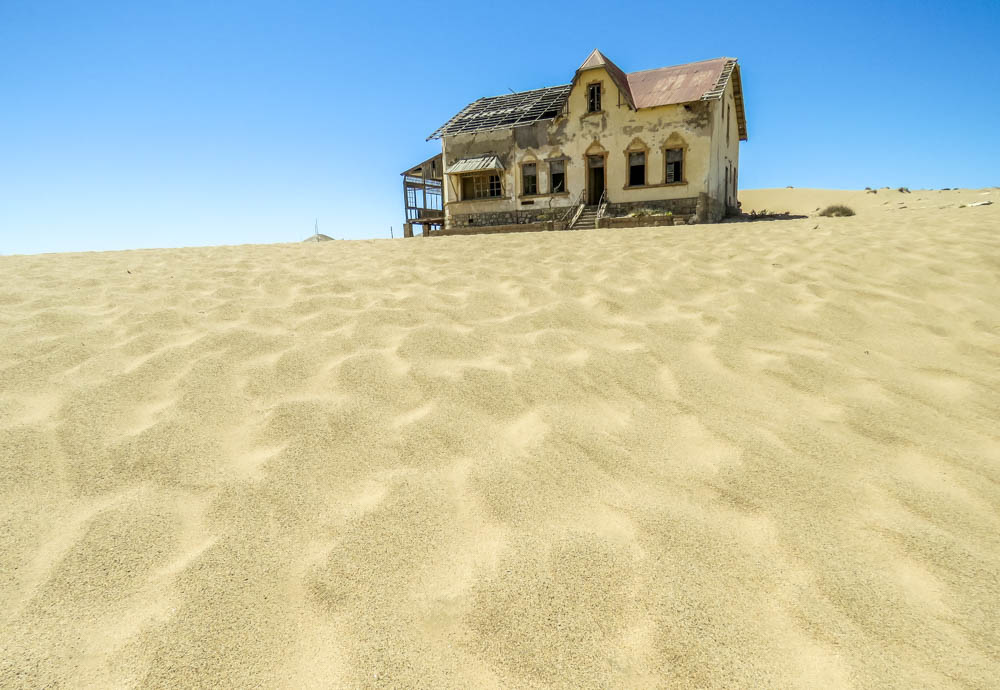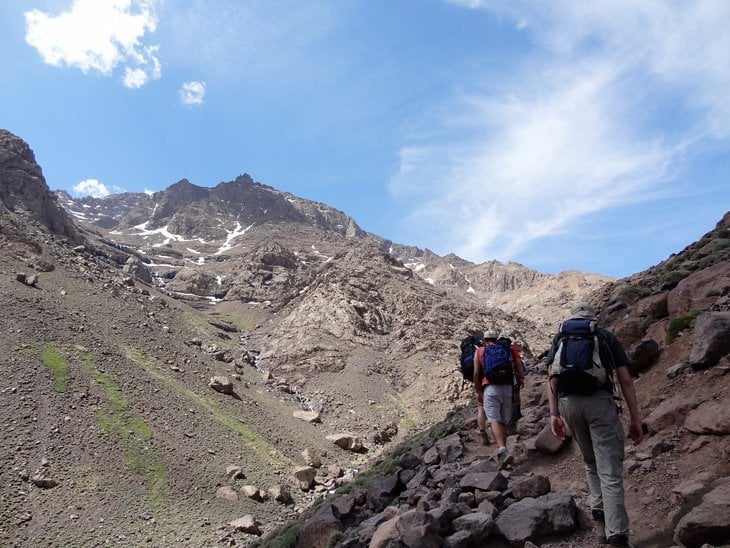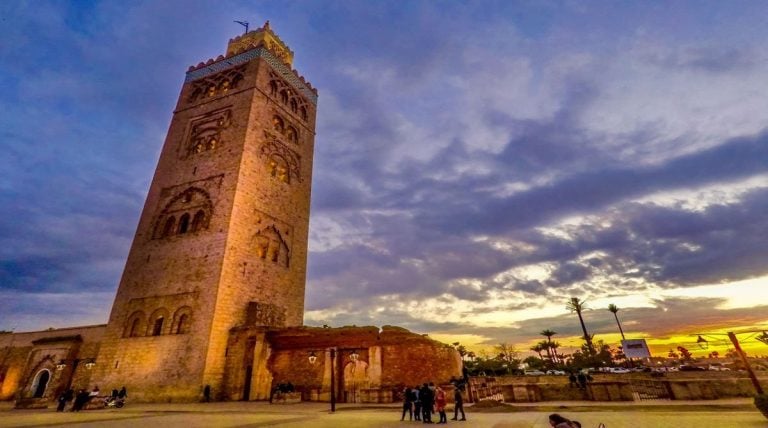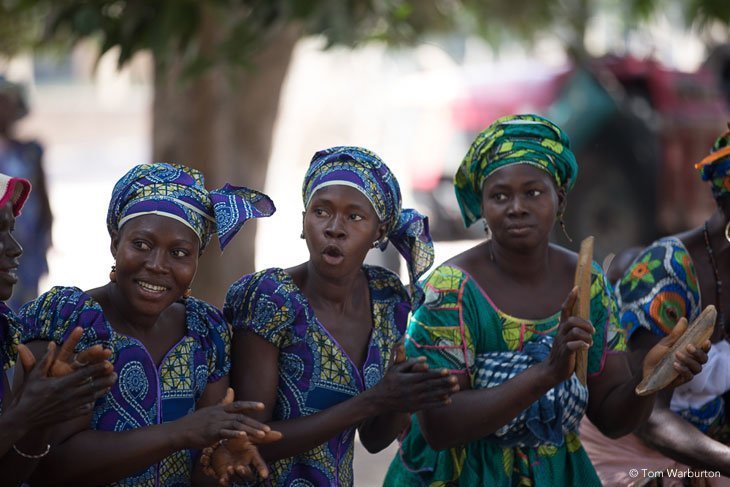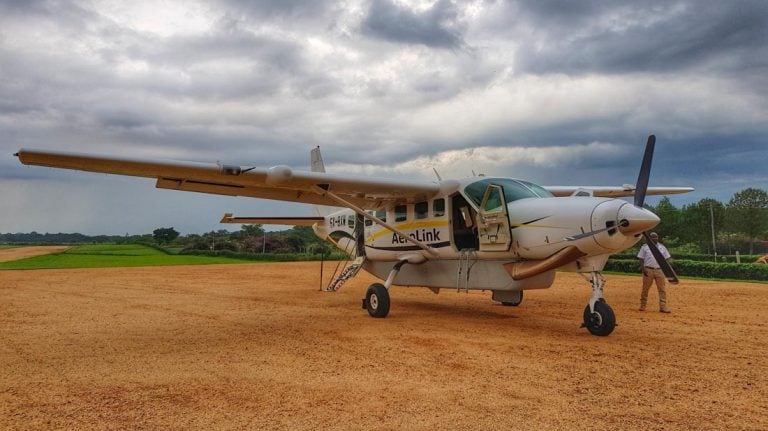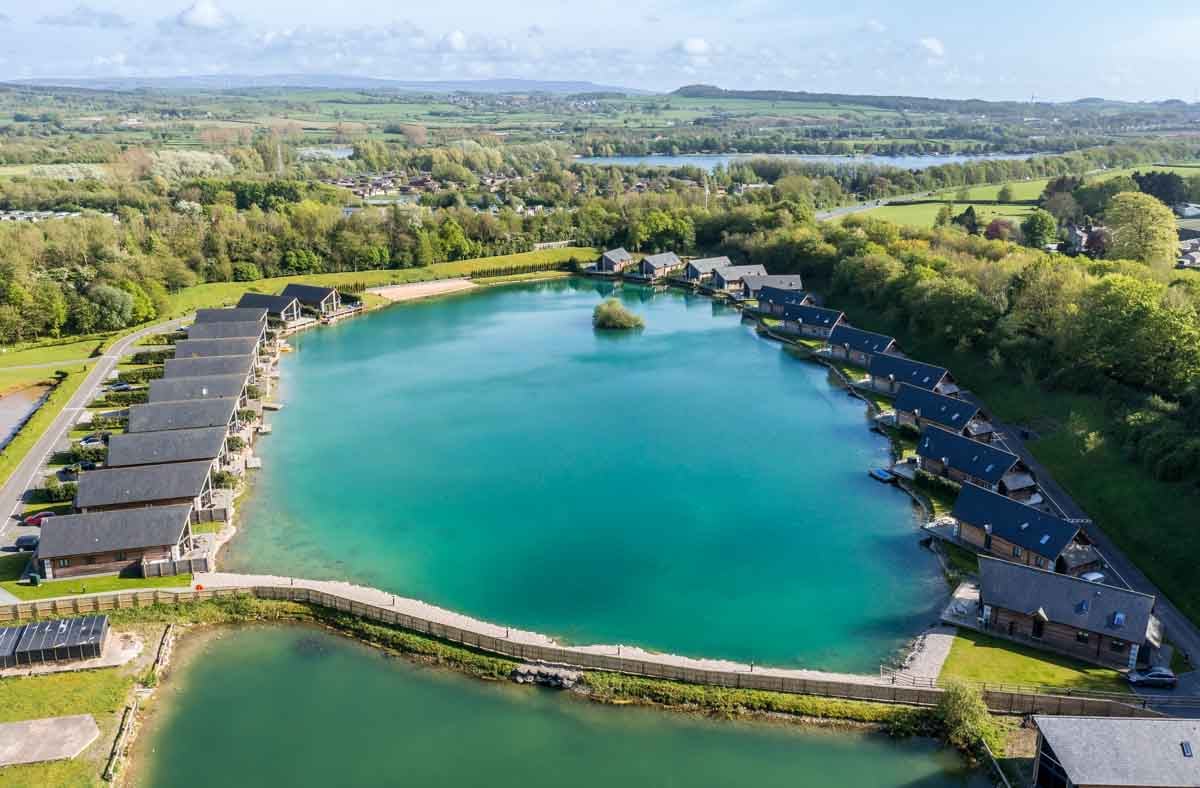Kolmanskop is a ghost town in Namibia, inundated by rolling banks of sand, in the middle of a region known as “The forbidden zone”.
Within a timeline of 40 years, this town was created, flourished and was left deserted – perhaps diamonds are not forever?
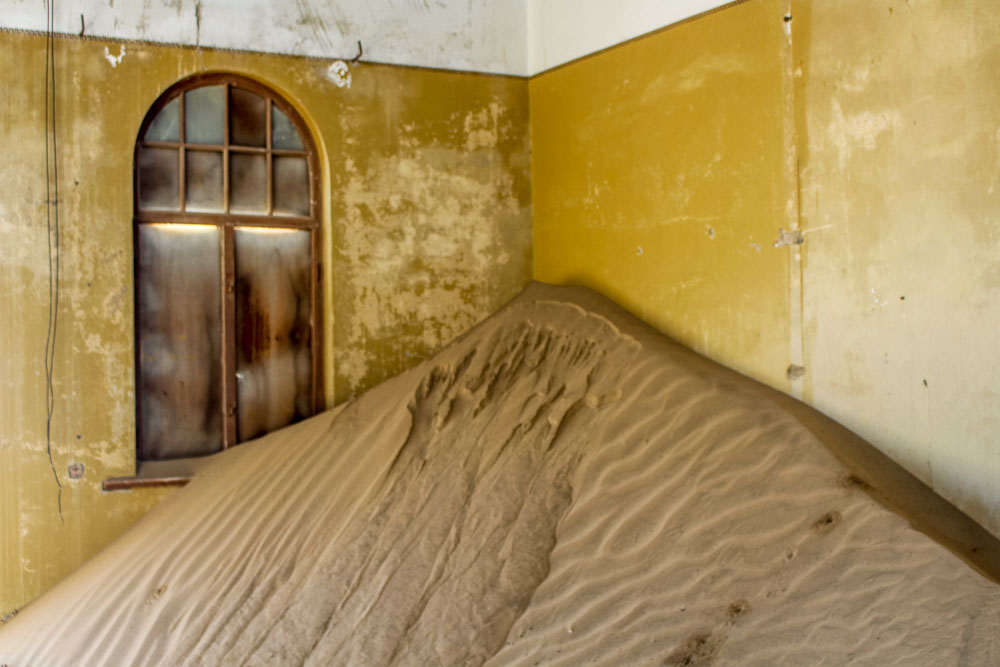
This little town in the desert started out as a small railway station between Keetmanshoop and the coastal town of Luderitz. The story goes that a Namibian railway worker found the first diamond while clearing the railway tracks in 1908.
By 1912, a town had sprung up producing millions of carats a year – 12% of the world’s total.
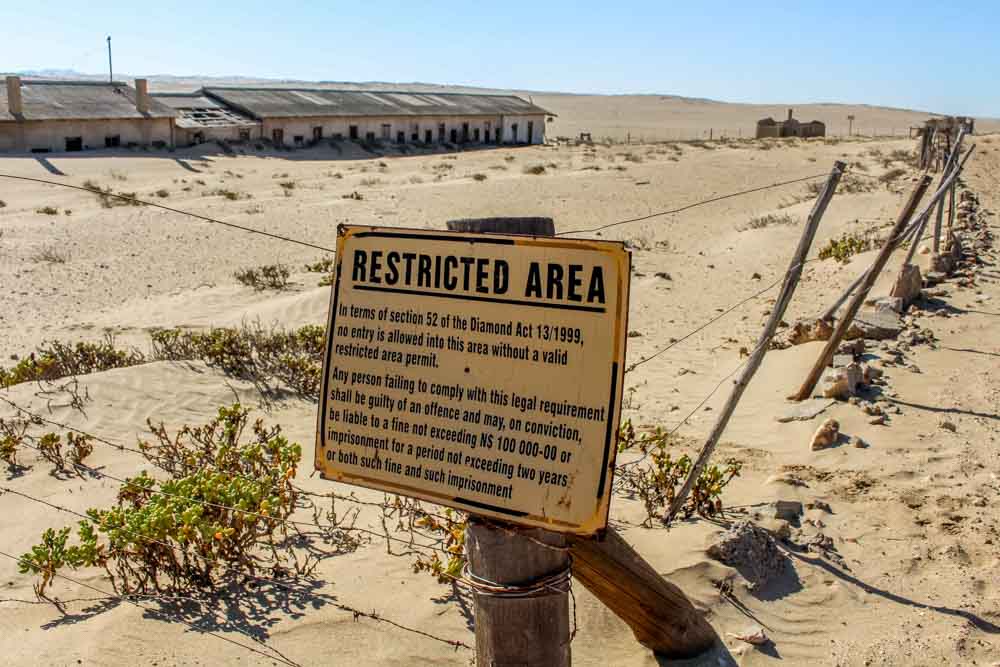
The area transformed into a fully functional German town, a luxury town in a barren desert. It had a butcher, baker, post office, school, bowling alley and hospital – the first to receive an X-ray machine in the Southern Hemisphere – probably to control workers who might swallow the diamonds.
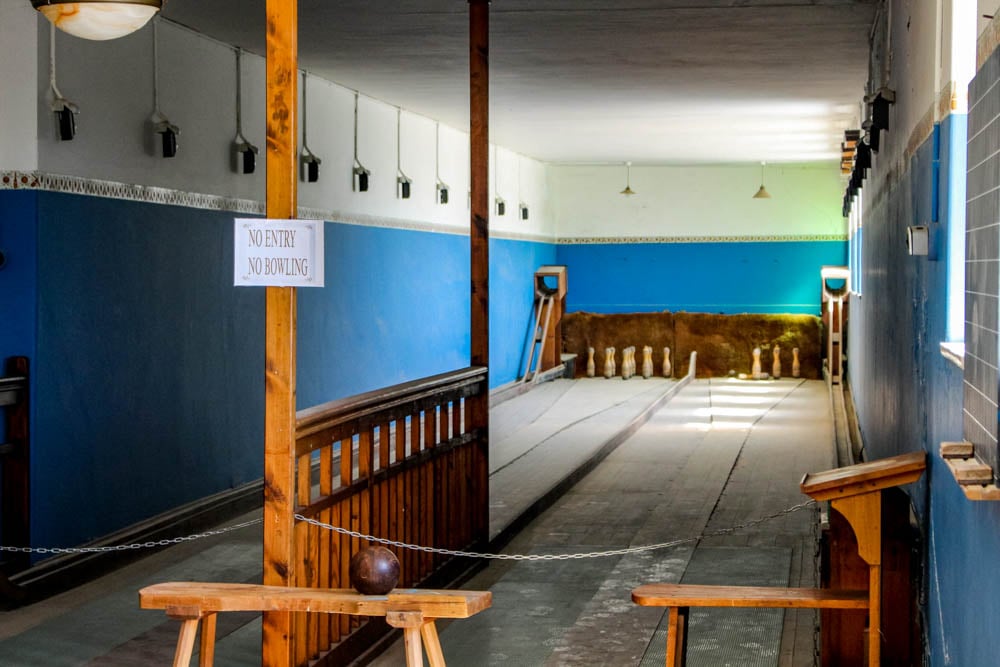
The town boomed until the 1920’s. All came to a rapid stand still after World War 1. Diamond prices dropped, the diamond fields were depleted and richer diamond deposits were found further south on the border of Namibia and South Africa.
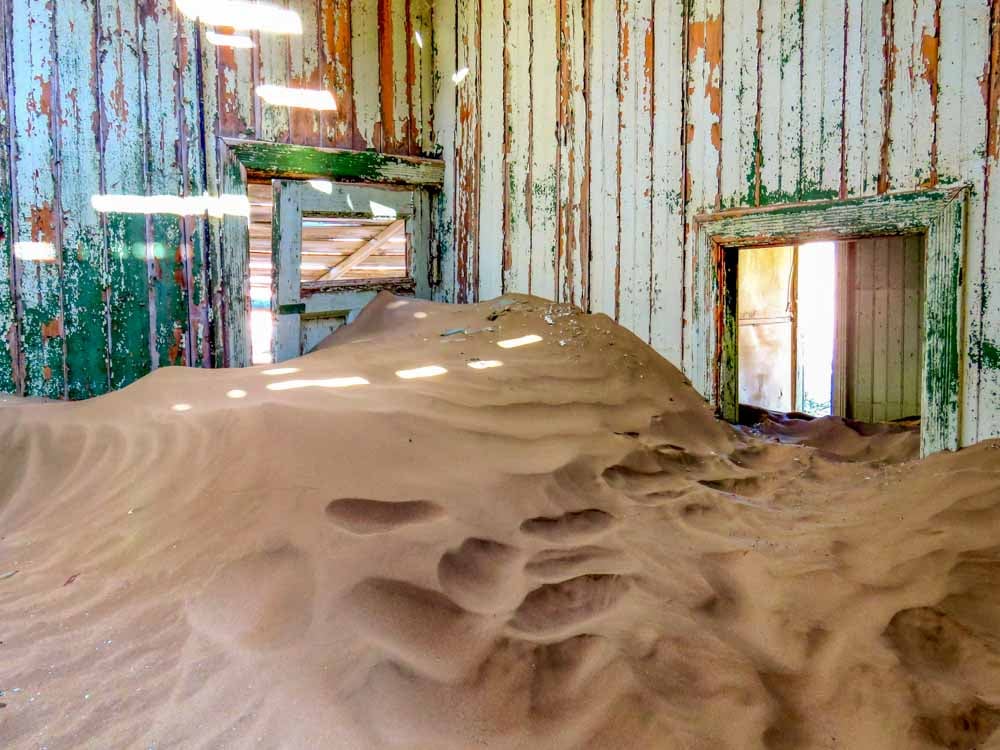
Townspeople left, abandoning their homes and possessions and the desert claimed its territory back.
The last inhabitant left in 1956, leaving the town abandoned. Dunes burst through homes, windows and doors filling the spaces with smooth banks of sand.
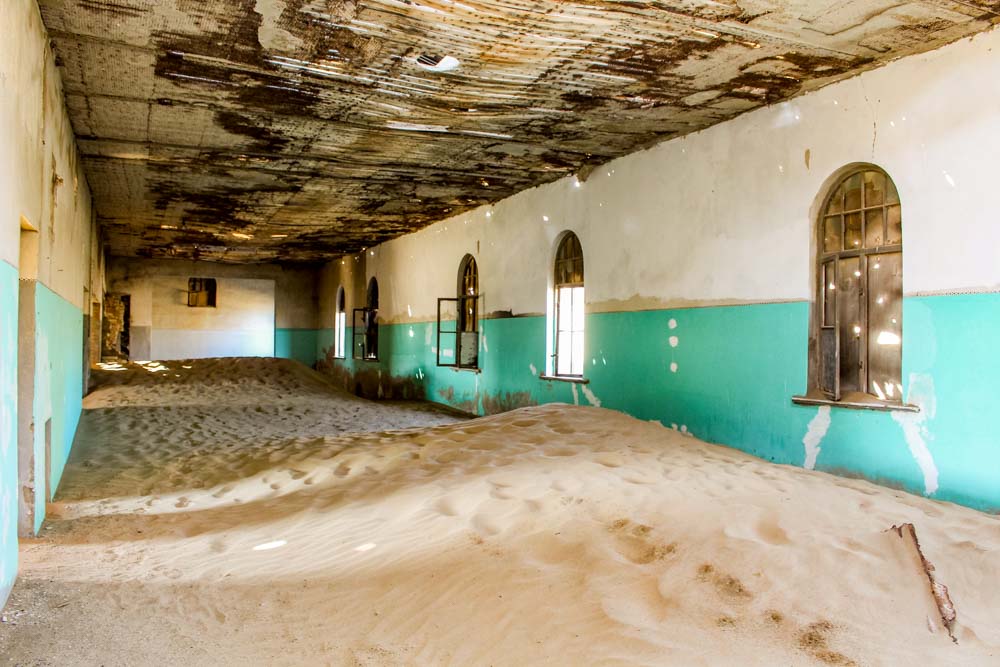
In 1980, the De Beers mining company restored and transformed the town into a museum for the public.
The town remains a mythical place and a photographer’s dream and therefore very much a must see destination.
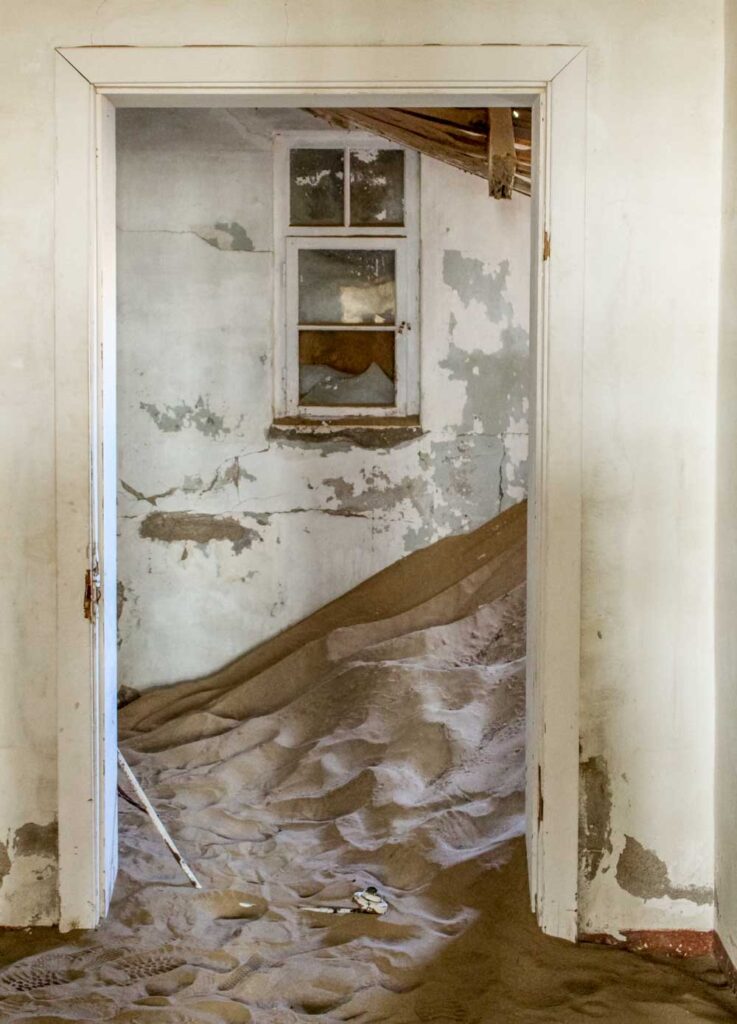
How To Visit
One can get permit at the entrance – or in Luderitz
There is Photo permit which allows you to go in before sunrise and stay after sunset – perfect for photographers and well worth it
A normal permit allows entrance between 9am and 1pm – and there are guided tours available at 09:30 and 11:00.
You do not have to join the tour, but can wander around on your own. I think the tour gave some interesting background but I enjoyed walking around on my own much more, so I could take my time and take photographs.
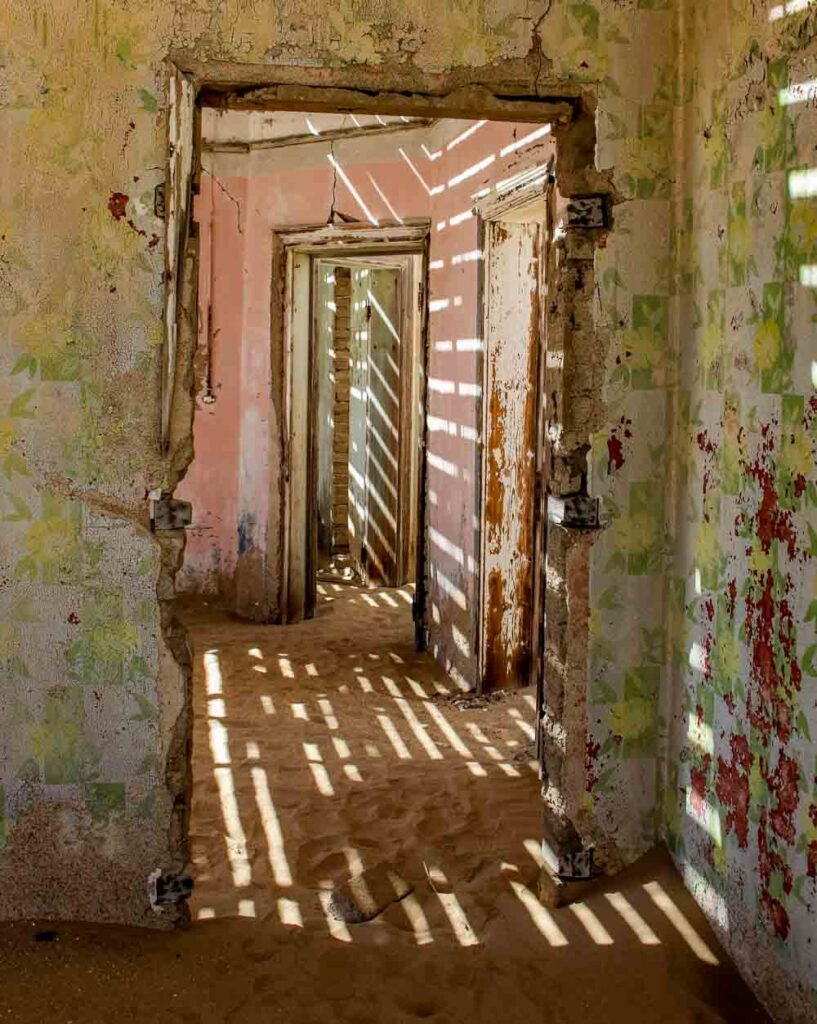
There is no accommodation – it is abandoned after all – the closest accommodation is in Luderitz, a coastal town about 10-15km drive away. There are some lovely restaurants and beautiful scenery – also look out for the wild horses!
It is about 700km from the capital Windhoek on a very good tar road. Down this side of Namibia you will likely also be visiting the Fish River Canyon and Sossusvlei dunes.
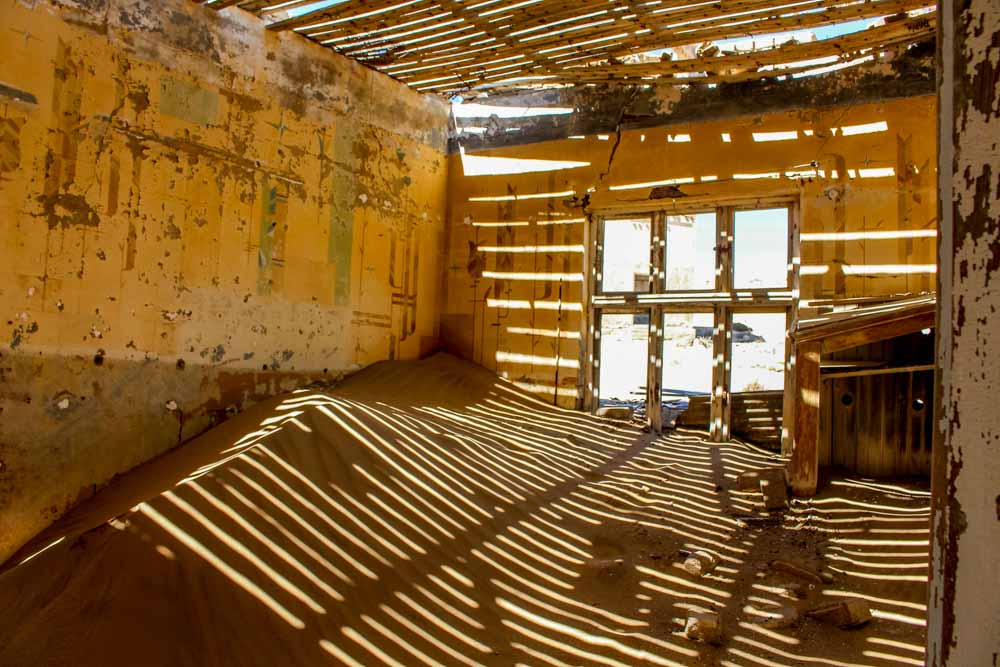
When To Visit
It is situated in part of the namib region – so typical desert weather. Winter months – June-August, cooler mornings, hot midday. I was there in December – Summer so starting early was a must – it’s hot already by 0830 in the morning.
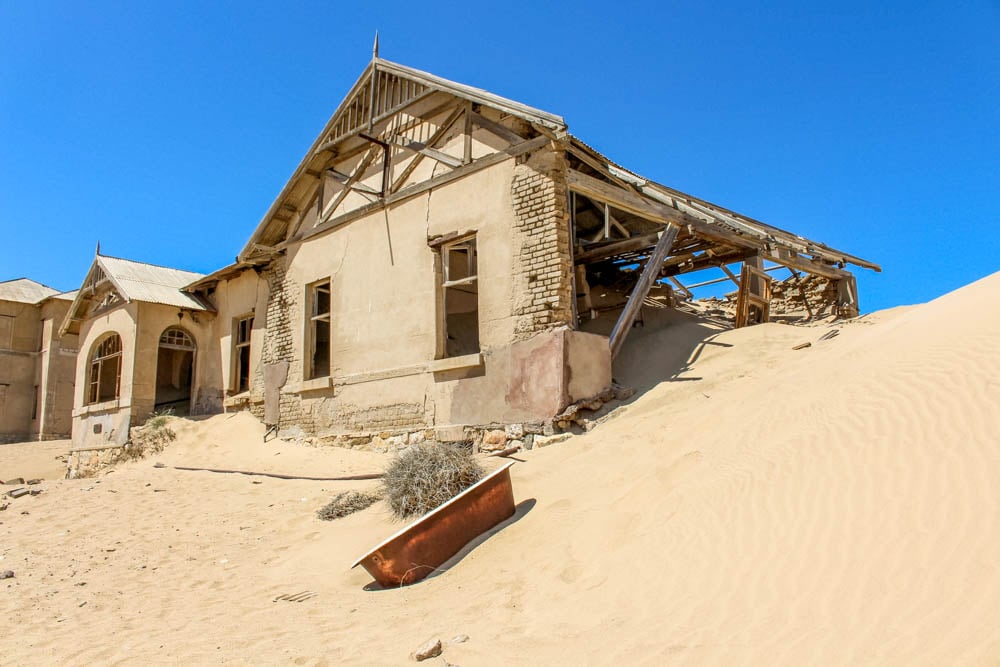
Coming in early though means it’s cooler, you get the beautiful shadows – the town sits on the east side of a hill – beautiful light, winds would have cleared the previous days visitor footprints, plus its quieter, darker enhancing the feeling of abandonment – and creepiness!
What To Take With You
- Water
- Camera – with extra batteries. The heat in the area means batteries don’t last as long
- Scarf – if its windy this helps to cover your face as well as cover/wipe your camera
- Hat & sunscreen – it gets hot quickly!
- Closed shoes – for the hot sand and safety (rusty nails, barbed wire)
- Common sense – the buildings are in various stages of disrepair, so before wandering into areas – especially upstairs areas, think and watch where you walk.
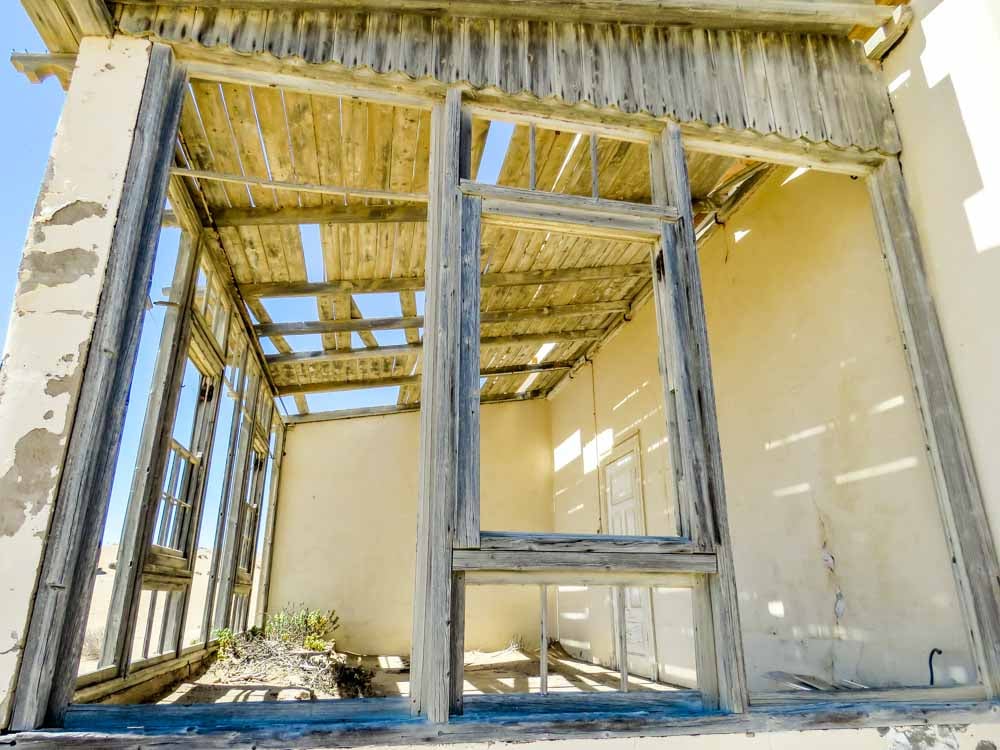
Despite conservation efforts and a limited number of visitors, it’s still showing marked deterioration – a reminder that nothing lasts forever!
Further Reading:

